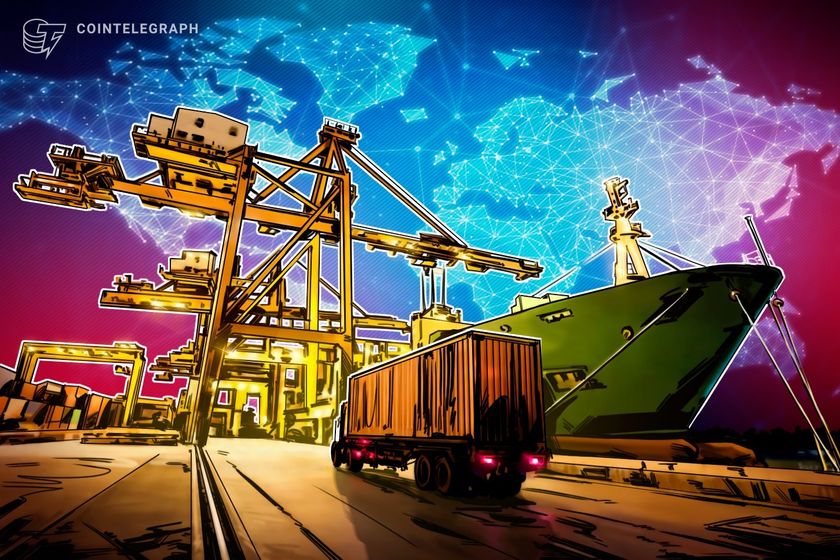
The escalating trade wars have sent shockwaves through cryptocurrency markets, but they are also paving the way for new use cases for blockchain networks, according to executives from Truebit. The recent announcement by President Donald Trump to impose sweeping tariffs on US imports has triggered threats of retaliatory measures from other nations. While the tariff rollout was paused for certain countries, the specter of a global trade war still looms, particularly as Trump reaffirmed his commitment to taxing Chinese goods.
In this uncertain trade environment, blockchain technology can play a crucial role in ensuring the fair application of tariffs, as highlighted by Federico Kattan, Truebit's chief technology officer. Kattan emphasized that blockchain can provide transparency by proving the provenance and chain of custody of goods. For example, companies could attempt to circumvent high tariffs by assembling or packaging products in low-tariff countries before importing them into the US at reduced rates. Blockchain can help track the origin of products, preventing fraudulent practices.
By recording every transaction on an immutable public ledger, blockchain networks can significantly enhance supply chain transparency, which is vital in the face of potential trade disruptions. Trump's proposed tariffs could impact $2.4 trillion worth of imports, with the possibility of additional retaliatory measures from other countries. Truebit, a blockchain network specializing in trustless verification, is already engaging with software vendors serving the US government and exploring the role of Web3 in global supply chains through a European Union-funded project.
While Truebit's native token has faced challenges since its launch in 2021, the company remains committed to leveraging blockchain technology to address trade war risks. However, other crypto executives have raised concerns about the impact of tariffs on blockchain networks. Nicholas Roberts-Huntley, CEO of Concrete & Glow Finance, warned that aggressive tariffs and retaliatory trade policies could create obstacles for node operators, validators, and other core participants in blockchain networks.
As trade tensions continue to escalate, there is a growing recognition of the importance of blockchain technology in ensuring transparency and accountability in global trade. Despite the challenges posed by trade wars, blockchain networks are poised to play a crucial role in shaping the future of international commerce. By leveraging the inherent transparency and security of blockchain technology, stakeholders can navigate the complexities of trade disputes and safeguard the integrity of global supply chains.

Leave a Reply